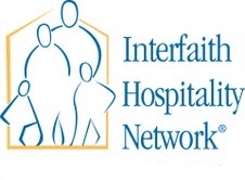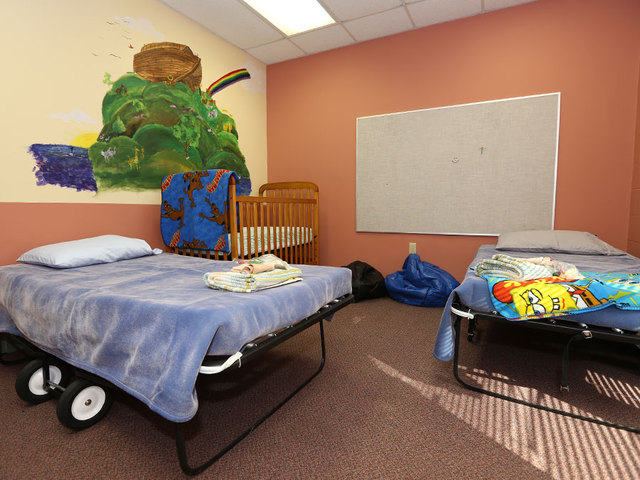The Interfaith Hospitality Network of Johnson County
Giving back through charitable organizations is at the foundation of our agency. On January 26th, the Interfaith Hospitality Network will be hosting their first volunteer training of 2017, and you can be a part of it. If you’re someone who has a passion for helping those in need locally, this is a great opportunity for you. Not only are you making a difference in the life of someone who’s homeless, but you’re also getting a chance to meet people you may have never met otherwise. Learning about their situation and the unfortunate circumstances that led up to it can show that homelessness doesn’t define the person.
The Interfaith Hospitality Network helps families with children under 18 and single (unaccompanied) women get back on their feet. The goal of this program is to give guests the financial education they need to start saving, a roof over their heads, and the emotional support they need during such a difficult time. The organization defines itself as “an interfaith homelessness intervention program that helps restore stability to…motivated and capable ‘situationally homeless’ families in Johnson County”.
This mission is made possible by those who donate their time and money to a worthy cause. A network of 35 congregations rotate to accommodate guests for four or five weeks out of the year. They transform rooms normally used for Bible studies and Sunday school classes into safe, clean spaces that guests can live in during the week. Guests have a total of 90 days (with the possibility of one 90-day extension) to find permanent housing, during which time they are served meals by volunteers, given classes on financial planning, and aided in job searching. The purpose of the program is not only to provide food and shelter for the guests, but also to teach them how to break the cycle of homelessness.
Since the program’s beginning in 2004, 568 people (including 341 children) have been provided with 122,000 meals and 40,000 overnight accommodations. Once a guest moves on to permanent housing, they are considered ‘graduates’. Many graduates keep in contact with the organization and join for the JoCoIHN holiday party day.
The JoCoIHN Family Center gives lessons on essential life and financial skills from a case manager and licensed clinical social worker. Guests can choose to focus on budget counseling, family and individual case management, job search assistance, or education and connection to community resources. They can also take classes about focusing on life, parenting, and coping skills. Guests show progress by sharing weekly budgets, documenting ten job searches a day, and saving 90% of their disposable income for future expenses once they graduate from the program.
The success of this program shows in the numbers. Seventy-five percent of the guests from 2015 obtained permanent housing. Hundreds of people have been helped by this homelessness intervention program and restored to stable living situations.
Volunteers for this program may be asked to make meals, stay overnight, host guests, drive the guest van, repair cars, staff the front desk, complete handyman work, or do data entry. Depending on your skillset, you can start working on any of these volunteer opportunities. A two-hour training course is required before you can begin volunteering.
The congregations that make this program possible come from a variety of denominations, all with a similar goal in mind: to help those who need it. As an interfaith organization, the Hospitality Organization forms relationships with secular groups through a shared love for empowering homeless women and families. Twelve host congregations and Twenty-three support congregations help make this program possible. The host congregations turn their classrooms into sleeping rooms, providing overnight sleeping quarters for one week, every three to four months. Volunteers are also in charge of setting up the bedrooms/bathrooms, preparing and serving meals, providing supplies, and planning activities. Each congregation provides separate sleeping facilities for each family. They also have a dining area, lounge, smoke alarm system and exits in case of emergencies.
The great thing about the Interfaith Hospitality Network is that it gives families support during the day and a break from the shelter environment in the evenings. Volunteers are able to learn more about homelessness and see the commonalties that connects us all rather than the living situations that separate us.
Homelessness in Kansas City
There were 549,928 people that were homeless at this same time a year ago. There were 68% sheltered, and the other 32% slept outside during one of the coldest months. Of this number, 22% were under the age of 18. Of those who are homeless, 39,471 are veterans. There are 77,486 people who are considered to be chronically homeless, a phrase which refers to “someone who has experienced homelessness for a year or longer, or who has experienced at least four episodes of homelessness in the last three years (must be a cumulative of 12 months), and has a disability”. Those who are chronically homeless tend to have higher rates of behavioral health problems, encompassing mental illness, substance use disorders, physical illness, injury and trauma. These individuals are frequent users of public safety systems and emergency services. Based on research, the solution seems to be permanent, supportive housing for those who are chronically homeless. Not only do they need a roof over their heads, but also supportive services that can help them rehabilitate.
Helping prevent homelessness isn’t just a moral obligation—it’s an economically smart decision. Those who live in permanent supportive housing won’t use expensive public services. Many who experience chronic homelessness end up in shelters, jails and emergency rooms, extremely costly programs.
While some might generalize that those who are homeless put themselves in that situation, there are several factors that go into the homeless epidemic. In Philadelphia, the poverty rate is 26%. Many who are homeless are paid too little to afford somewhere to live. For that city specifically, a person making $7.25/hr (the minimum wage) would have to work 81 hours to afford a modest, one-bedroom apartment. A lack of affordable transportation, little housing assistance, a lack of affordable health care, domestic violence, and inadequate mental health/substance abuse support all help contribute to homelessness in Philadelphia. In Kansas City, reports show that homelessness can be attributed to long-term unemployment, not enough affordable housing units, and decreased social service agency funds. The Interfaith Hospitality Network aids these individuals by giving them the resources they need to achieve a permanent living situation and a safe environment to sleep and relax.
This story from NortheastNews.net discusses the multi-faceted issues that go into the homelessness problem. For one, religious organizations that bring food and goods to the homeless population are acting as enablers and further enhancing dependence. Instead of bringing food, it’s better to donate to organizations that try to get them back on their feet and rehabilitated. In addition, many of the organizations that bring food don’t have food permits. Permits are required to ensure that the cooking facilities for the food are clean. They also make it easier to track any food-borne illnesses that spread.
Another issue with these faith-based organizations is that they don’t always consider good safety practices, and can help contribute to littering around the area. For example, some organizations bring children to help hand out food, not realizing that some of the people they’re serving may have a history of violent crimes or sexual assault. They may also be suffering from a mental disorder that needs professional attention. You can inadvertently contribute to the littering problem in these camps by providing food, since there aren’t receptacles to dispose of waste. Kansas City is trying to create laws that would require feeding groups to also supply trash cans and portable toilets. What makes the Interfaith Hospitality Network so unique is that it gives long-term aid to the temporarily homeless.
Part of a new plan to alleviate homelessness in Kansas City includes identifying illegal homeless camps and teaching them about the services available to them. This Homeless Outreach Team would be made up of city departments, KCPD and social service organizations, and they would spread awareness about permanent living situations and mental health help. They would also make veterans aware of veteran services.
How You Can Help
At the root of this issue is substance abuse and mental illness problems. According to research conducted about chronic homelessness, 72 percent of participants had substance abuse and 76 percent had mental illness problems. There’s been a national decline in the number of those who are homeless, with a national 3% drop from 2015 to 2016. However, the Johnson Country Interfaith Hospitality Network works to not only provide a place for homeless people to live, but also a path toward permanent residency, a steady job, and financial security. Ontarget has aided their mission by redesigning their website to be responsive with our Web Development service. Our support of charitable organizations has allowed us to help the homeless in the Kansas City community, trafficked and vulnerable children in Ghana, Vietnam, and Cambodia, and mothers receiving HIV medication in third-world countries. If you’re interested in helping the Interfaith Hospitality Network, Global Health Innovations, or the Touch-A-Life Foundation, visit their websites and find out how you can donate your time or money to make a difference. We’re all about providing honest digital marketing services for our clients and giving back to those in need.



